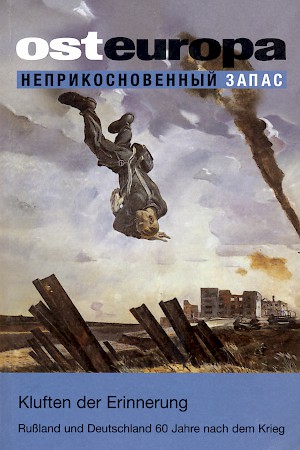No-one and nothing is forgotten
The occupation as oral history
Deutsche Fassung
Abstract
By using the resources of oral history, we can obtain insights into everyday life during the war which diverge from the grand narratives canonized by the state. People from a village in the Pskov region have related their experiences under German occupation, and have recalled the role of the partisans and a mass execution. What they remember refers to individual cases. Moral evaluations of what was seen and experienced are made on this basis alone. In this way the stereotypes, normative judgements, and dichotomies such as friend/enemy and good/evil with which we are familiar from the grand narratives begin to crumble. Relating what one has experienced makes it possible for local communities of memory to come into being, and these draw their identities from history.
(Osteuropa 4-6/2005, pp. 444–461)



